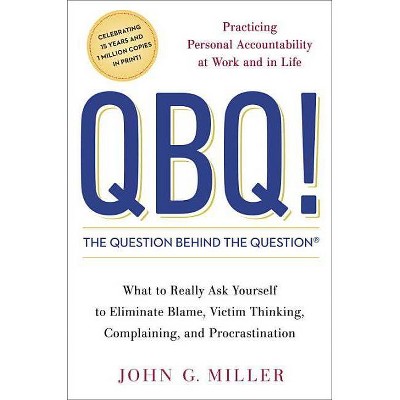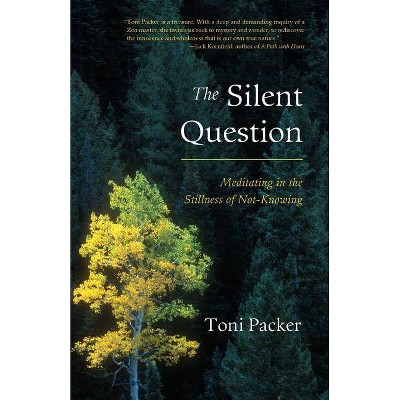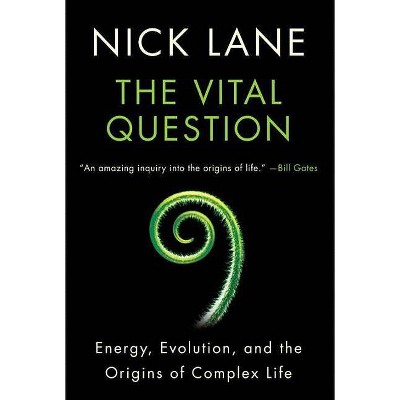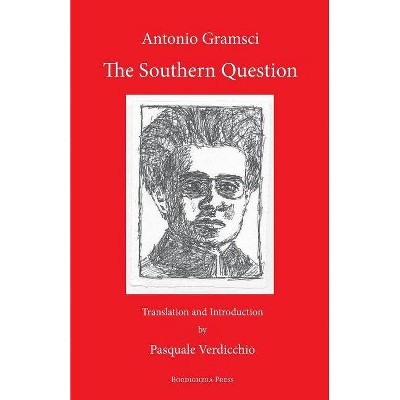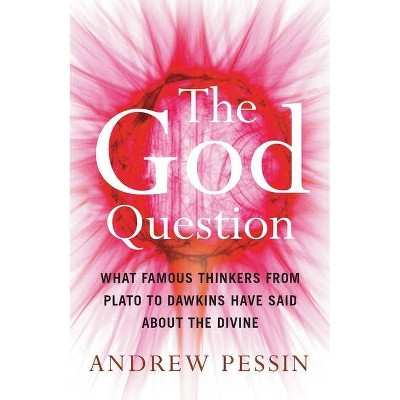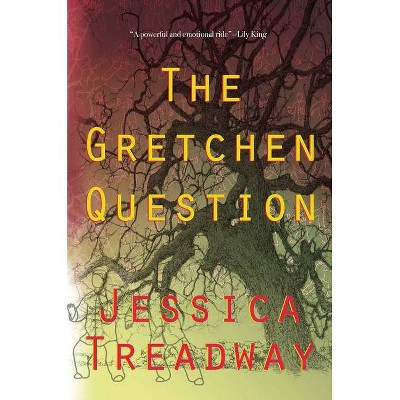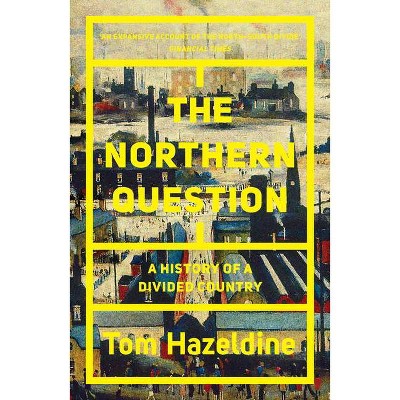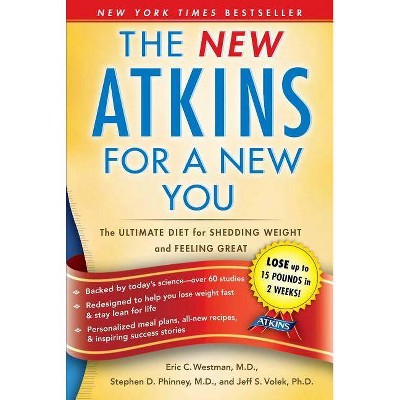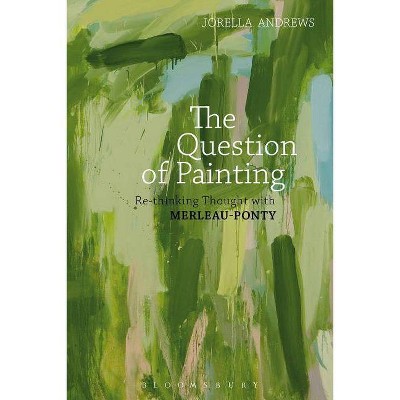The Copernican Question - by Robert Westman (Paperback)
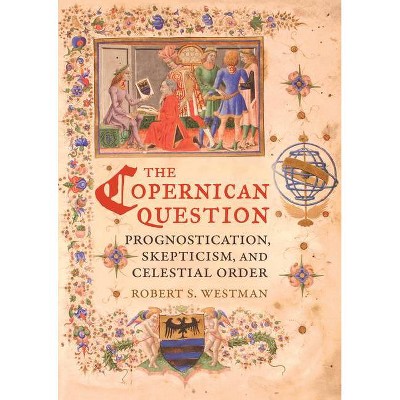
Similar Products
Products of same category from the store
AllProduct info
<p/><br></br><p><b> Book Synopsis </b></p></br></br>In 1543, Nicolaus Copernicus publicly defended his hypothesis that the earth is a planet and the sun a body resting near the center of a finite universe. But why did Copernicus make this bold proposal? And why did it matter? <i>The Copernican Question</i> reframes this pivotal moment in the history of science, centering the story on a conflict over the credibility of astrology that erupted in Italy just as Copernicus arrived in 1496. Copernicus engendered enormous resistance when he sought to protect astrology by reconstituting its astronomical foundations. Robert S. Westman shows that efforts to answer the astrological skeptics became a crucial unifying theme of the early modern scientific movement. His interpretation of this long sixteenth century, from the 1490s to the 1610s, offers a new framework for understanding the great transformations in natural philosophy in the century that followed.<p/><br></br><p><b> From the Back Cover </b></p></br></br>Westman's profound understanding of his subject informs every page of this magisterial book. <i>The Copernican Question</i> provides a new road map to one of the central episodes in the history of science, in all its cultural, social, and philosophical complexity. --Peter Dear, author of <i>Revolutionizing the Sciences: European Knowledge and Its Ambitions, 1500-1700</i><br /><br /> "<i>The Copernican Question</i> is a truly astonishing work. Westman writes with the authority of someone who has really done his homework; he tells a fascinating story and tells it exceedingly well. --Ernan McMullin, editor of <i>The Church and Galileo</i><br /><br />"Robert Westman's engrossing book--the fruit of many years' research--offers the best answer given so far to the question of Copernicus. The Polish astronomer was an enigma to his contemporaries and to many who later struggled to understand his ideas. Westman shows that astrological prediction provides the missing key to his work and to its interpretation by astronomers in the subsequent decades. He sets the Copernican tradition against a backdrop of tumultuous religious conflict, apocalyptic prophecies, and the explosive growth of printed publications. This book is a magnificent scholarly achievement. Everyone who is seriously interested in the science and culture of early-modern Europe will want to read it." --Jan Golinski, author of <i>British Weather and the Climate of Enlightenment</i><br /><br />Robert Westman's <i>The Copernican Question</i> is a magnificent achievement. It is a comprehensive, nuanced, and fascinating reinterpretation of the Copernican century and the transformation of astronomy. This book will be of interest to anyone who wants a new understanding of the history of the heliocentric hypothesis and the complex problems facing Copernicus and his contemporaries and followers. --Carolyn Merchant, author of <i>The Death of Nature: Women, Ecology, and the Scientific Revolution</i><br /><br />"<i>The Copernican Question</i> is a richly detailed, extensively researched, and engagingly written book that radically recontextualizes major figures in the "science of the stars" from Copernicus to Galileo, revealing new connections and motivations for their work and ideas. It will be required reading for historians and philosophers of science and for anyone interested in how and why we came to know what we do about the heavens." --Lawrence M. Principe, author of <i>The Scientific Revolution: A Very Short Introduction</i><br /><br /><br /><br /><br /><br /><br /><br /><br /><br /><p/><br></br><p><b> Review Quotes </b></p></br></br><br>". . .a towering achievement not only because it covers an extended period of time but also because Westman is a gifted writer who knows how to maintain the interest of the reader who is not an expert in astronomy."-- "American Historical Review"<br><br>"<i>The Copernican Question</i> opens a number of significant interpretive paths. . .It reframes Copernicus deeply in the social practices and institutions of early modern mathematical culture [and] gives the broadest, richest account yet available of the pan-European institutional dynamics of that culture."-- "Fides et Historia"<br><br>"a radical and largely unanticipated interpretation of the history of Copernican heliocentrism. . .This book is indispensable and will remain at the center of the scholarly debate for a long time to come."-- "Galilaeana"<br><br>"[An] enormously erudite treatment."-- "Science"<br><br>"[A] powerful, thoughtful reinterpretation of the entire period from around 1500 to around <br> 1700. . .This is an important book. Get it and read it carefully. . . . Westman has made a major contribution to the new picture that is emerging of Copernicus's life and work."-- "Metascience"<br><br>"A rich, multifaceted work."-- "Renaissance Quarterly"<br><br>"An extraordinary book written by one of the finest historians of science."-- "New Books In Science, Technology, And Society"<br><br>"Now, more than forty years after [Westman] began work, twenty-five years after he announced the book as forthcoming, twenty years after he decided his first project was insufficiently ambitious, six years after he came to a sort of a stop - now, at long last, we have this vast (and beautifully produced and illustrated) book to hold in our hands."-- "Times Literary Supplement"<br><br>"This important work--massive, original, provocative, and potentially transformational--is the culmination of a lifetime's work."-- "Quest: History Of Spaceflight"<br><br>"This is a towering achievement. . . .Westman is a gifted writer who knows how to maintain the interest of the reader who is not an expert in astronomy."-- "American Historical Review"<br><br>"This substantial book is magnificent in command of materials and in its clear presentation of them all. We see astrology giving way to astronomy. We understand the forces both progressive and regressive in the age of vast alteration beginning in the last decade of the fifteenth century. We grasp the movement toward the first decade of the seventeenth. . . . With extraordinary illustrations, this is a wonderful book."-- "Bibliotheque D'humanisme Et Renaissance"<br><br>"Westman proposes a radically new approach to his subject, which will surprise more than one specialist in Copernican studies."-- "Journal For The History Of Astronomy"<br><br>"Westman takes readers back to the 15th century, showing the transformation of thought from mysticism and astrological predictions to the beginning of modern science, with the contributions of Galileo and Newton. - Recommended."-- "Choice"<br><br>"Without a doubt, <i>The Copernican Question</i> is a landmark in what was already one of the most intensely studied topics in the history of science."-- "The British Journal for the History of Science"<br><p/><br></br><p><b> About the Author </b></p></br></br><b>Robert S. Westman</b> is Professor Emeritus of History of Science and a founding member of the Science Studies Program at the University of California, San Diego. He was the 2018-2019 Sarton Chair and recipient of the Sarton Medal in the History of Science at the University of Ghent, Belgium, awarded for lifetime achievement.
Price History
Price Archive shows prices from various stores, lets you see history and find the cheapest. There is no actual sale on the website. For all support, inquiry and suggestion messagescommunication@pricearchive.us
